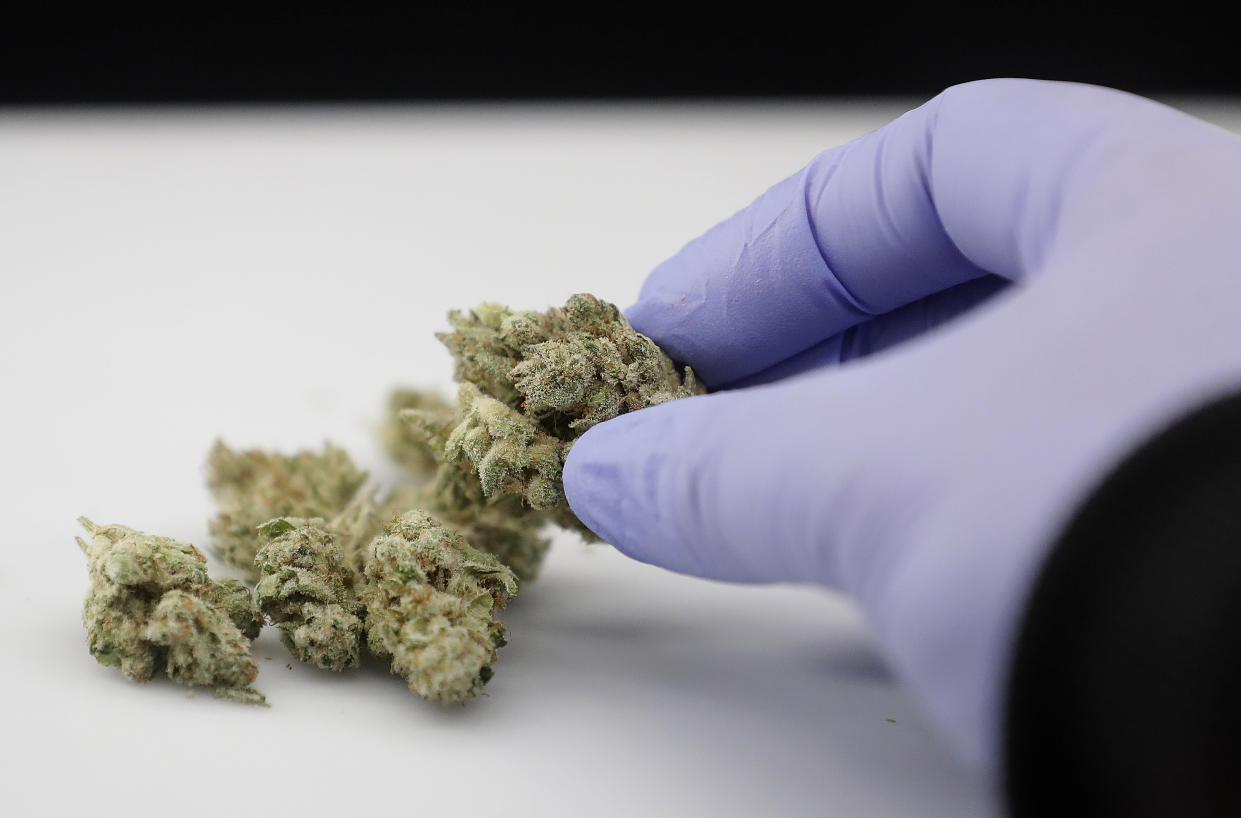Sorry Ontario, online pot stores won't deliver the experience you're looking for

Online cannabis sales will represent just 10 per cent of the Canadian market as more sophisticated brick-and-mortar stores open their doors and private pot-selling retail matures post-legalization, according to a well-versed industry observer.
Nick Pateras, vice president of growth and international strategy at the cannabis data firm Lift & Co., expects physical stores will capture the overwhelming majority of legal cannabis sales after Oct. 17.
Ontario will of course be the exception until April 2019, when licensed storefront retailers are allowed to start selling, he said.
“When we look at how launches are rolled out in each (provincial) market, and rolled out in the U.S. (at the state level), there is a strong preference for consumers to go through brick-and-mortar,” Pateras told Yahoo Canada Finance. “We know from U.S. markets that cannabis shopping is a very tactile experience. Consumers want to smell and see the product.”
Many modern marijuana dispensaries south of the border are bright, sleek open-concept affairs with the look and feel of an Apple store.
MedMen Enterprises Inc. (MMEN.CN), perhaps the best-known player on the U.S. retail weed scene, uses tablets and knowledgeable sales associates to teach marijuana newbies about the products in a comfortable setting.
“You cannot replicate the type of education this consumer needs in an online shopping channel like you can in brick-and-mortar,” Pateras said. “You’ve got those who have never consumed at all, or maybe consumed decades ago. They are as naive as you get.”
Countless dispensaries across Canada currently deliver online orders to customers, often with the requirement that they self-diagnose a condition like anxiety or trouble sleeping on the website. The extent to which the new crop of legal retailers will adopt delivery service remains to be seen.
“I know several private e-commerce cannabis players. None of whom are currently operating legally. I don’t think they have a path to legality,” Pateras said.
“I think there will not be same-day delivery offered initially. Will it ever be offered will be a reflection of where there is a market appetite for it. Delivery speed is going to be a big piece. How much the added fees are for a delivery service is going to be another.”
He also looks to alcohol sales in Canada to make his case for why weed will not be among the retail sectors increasingly defined by the rise of e-commerce.
The Liquor Control Board of Ontario (LCBO) introduced online booze sales in the province in 2016. That year, online orders accounted for less than one per cent of the crown corporation’s revenue.
Wait times are to blame, Pateras said, noting that alcohol is frequently purchased for short-term or same-day consumption. LCBO orders, which are estimated to take between two and four days to arrive in most cases, aren’t quick enough to satisfy the thirstiest customers.
“On a Friday night, look at how busy the LCBO is. Very few consumer categories offer that kind of expediency in delivery services,” Pateras said. “You’d have to be planning ahead to drink on a Friday night, maybe let’s say as early as the Monday of that week. That delivery service doesn’t meet the need.”
The LCBO’s online sales experience is perhaps the most reliable indication of how cannabis will be sold online in Ontario, as well as the eight other provinces and territories where governments conduct some or all online sales.
Saskatchewan and Manitoba will allow private online sales.
The Ontario Cannabis Store (OCS), the LCBO subsidiary for cannabis sales, has not announced a delivery partner with less than two weeks to go before legalization. If the OCS chooses Canada Post, which currently handles medical marijuana deliveries and the LCBO’s online booze business, it could mean not a single Ontarian will be able to light up a legally-purchased recreational joint on Oct. 17.
OCS spokesperson Daffyd Roderick said on Thursday that Ontarians can expect an announcement on the province’s delivery partner, wait times, and what, if any, measures are being put in place to handle a potential surge of cannabis orders on Oct. 17 “in the near future.”
Pateras said Ontario’s decision to temporarily force cannabis buyers to use a yet-to-be-launched government website could see online sales account for 25 per cent of the market in the near-term.
He adds that buyers in communities slow to open pot shops at first could also support that figure.
“Ten per cent is my target for when the market matures. Let’s say in three to four years from now,” he said. “Brick-and-mortar will remain, just like the alcohol business, the vast majority of all sales.”
Download the Yahoo Finance app, available for Apple and Android.



